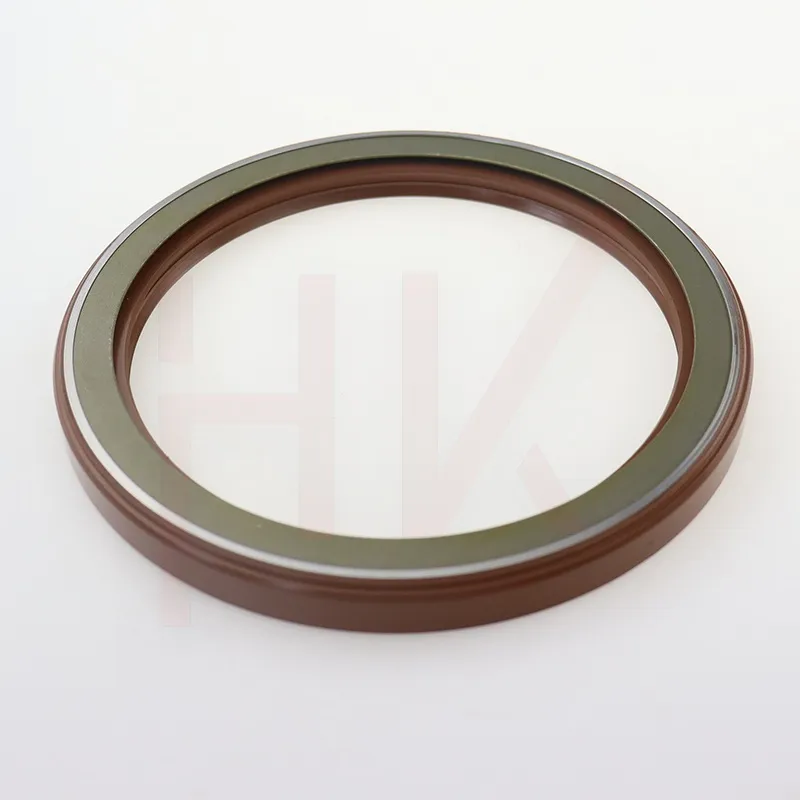Nov . 07, 2024 08:58 Back to list
Understanding the Importance of Hydraulic Shaft Seals in Fluid Power Systems
Understanding Hydraulic Shaft Seals Importance and Applications
Hydraulic shaft seals are essential components in various hydraulic systems. Their primary function is to prevent fluid leakage between moving parts, especially where a shaft exits a housing, such as in pumps, motors, and compressors. These seals play a critical role in maintaining system efficiency, reducing wear and tear, and ensuring safety in industrial applications.
Composition and Design
Hydraulic shaft seals typically consist of elastomeric materials, such as nitrile rubber, fluorocarbon, or polyurethane, designed to withstand high pressure and variable temperatures. The design of these seals can vary depending on the application requirements but usually includes a sealing lip, a metallic or plastic support, and sometimes a spring mechanism to ensure consistent contact against the rotating shaft. The sealing lip is often engineered to create a dynamic seal, which enables it to adapt to the shaft’s movements while preventing hydraulic fluid from escaping.
Types of Hydraulic Shaft Seals
Several types of hydraulic shaft seals are available, each suited for specific applications
1. Lip Seals These are the most common type, designed with a flexible lip that presses against the shaft. They are ideal for low to moderate pressure applications.
2. U-Cups Also known as U-seals, these offer excellent sealing capabilities for both static and dynamic applications. They can handle higher pressures compared to lip seals.
3. O-Rings While primarily used for static seals, O-rings can be incorporated into hydraulic systems for additional sealing.
4. Mechanical Seals Often used in high-speed applications, mechanical seals consist of two flat surfaces that move against each other to create a seal.
Importance of Hydraulic Shaft Seals
Hydraulic shaft seals serve several important functions in hydraulic systems
hydraulic shaft seal

- Leak Prevention One of the most crucial roles of hydraulic seals is preventing fluid leaks, which can lead to system failure and environmental hazards
.- Pressure Maintenance Seals help maintain the necessary pressure within hydraulic systems, allowing for efficient operation.
- Contaminant Exclusion Seals also protect the internal components from external contaminants, such as dirt and debris, which can cause wear and damage over time.
- Energy Efficiency By preventing leaks, hydraulic shaft seals contribute to overall energy efficiency in hydraulic systems, reducing operational costs.
Common Applications
Hydraulic shaft seals are widely used across various industries
- Automotive In vehicles, hydraulic seals are used in steering systems, braking systems, and transmissions.
- Manufacturing Hydraulic cylinders and presses use these seals to operate effectively while handling heavy loads.
- Construction Equipment like excavators and bulldozers rely on hydraulic systems, making effective sealing crucial for durability and performance.
- Marine and Aerospace In these industries, hydraulic seals help ensure safety and reliability in critical applications, from control systems to landing gear.
Conclusion
In conclusion, hydraulic shaft seals are vital to the functionality and longevity of hydraulic systems. Their ability to prevent leaks, maintain pressure, and keep contaminants at bay cannot be overlooked. As technology advances, the materials and designs of these seals continue to improve, enhancing their performance and reliability. For industries reliant on hydraulic systems, investing in high-quality seals is essential to ensure operational efficiency and safety, ultimately leading to better performance and reduced costs.
-
TCN Oil Seal Metal Ring Reinforcement for Heavy Machinery
NewsJul.25,2025
-
Rotary Lip Seal Spring-Loaded Design for High-Speed Applications
NewsJul.25,2025
-
Hydraulic Cylinder Seals Polyurethane Material for High-Impact Jobs
NewsJul.25,2025
-
High Pressure Oil Seal Polyurethane Coating Wear Resistance
NewsJul.25,2025
-
Dust Proof Seal Double Lip Design for Construction Equipment
NewsJul.25,2025
-
Hub Seal Polyurethane Wear Resistance in Agricultural Vehicles
NewsJul.25,2025
-
The Trans-formative Journey of Wheel Hub Oil Seals
NewsJun.06,2025
Products categories
















